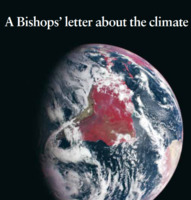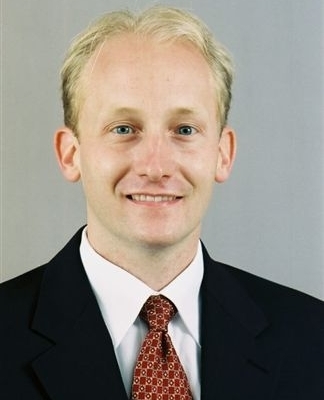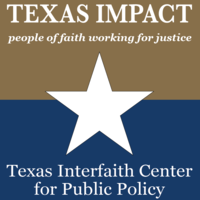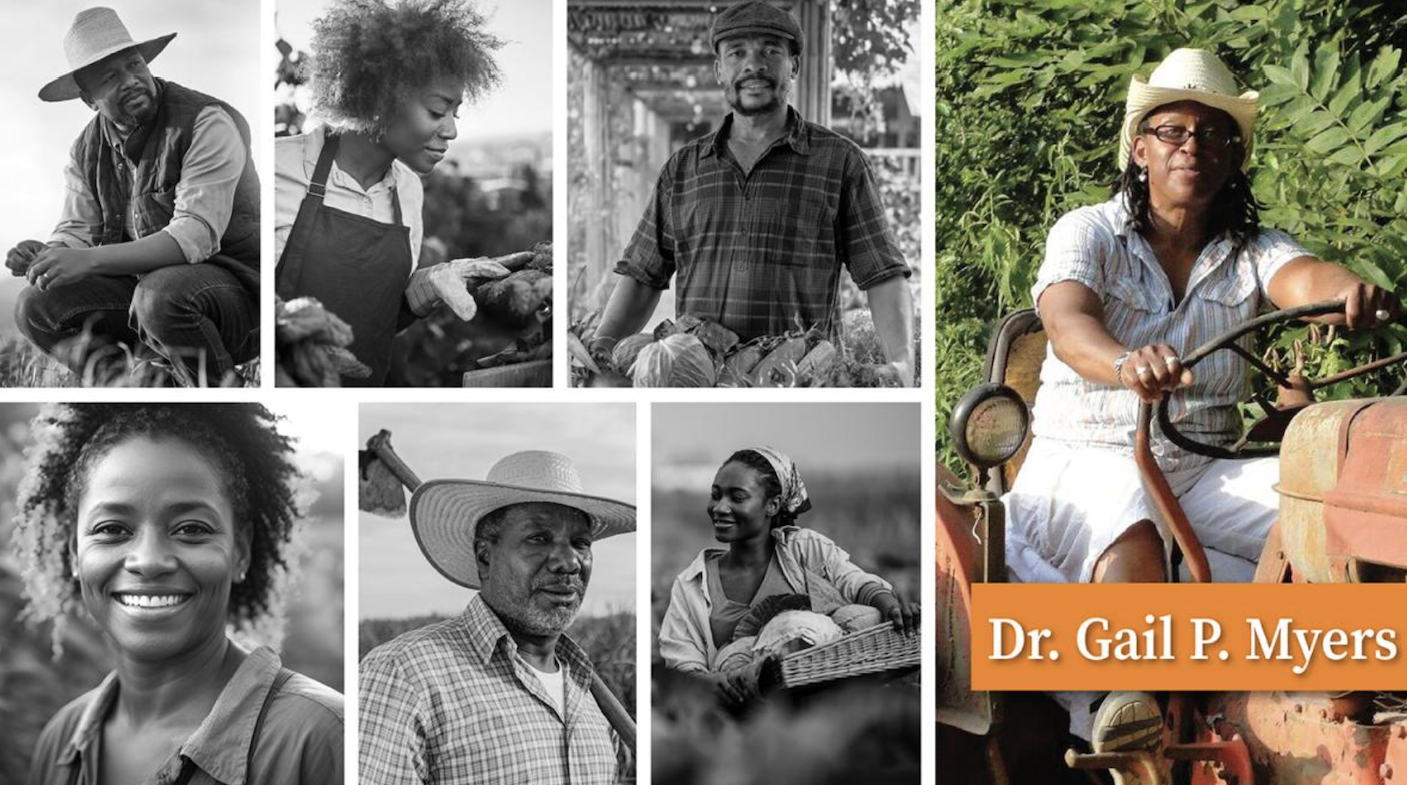Search
118 items
-
A Bishops’ Letter about the Climate
Below is a section of the introduction from A Bishops’ Letter about the Climate, which covers a multitude of critical environmental issues, from the 2014 Bishops' conference:
"We have lived with reports and forecasts of climate change since the 1980s. Our climate is the result of the interaction of complex systems and there is often a great distance between cause and effect in terms of both space and time. There are uncertainties and a lack of clarity. However, the knowledge we possess today does not allow us to postpone until tomorrow
what needs to be done now. Our human climate impact must decrease for the sake of the earth, for the sake of the world that God so loves that God gave us Jesus Christ." -
The world is our host: A call to urgent action for climate justice
Anglican Bishops from around the world discuss various environmental complications resulting from climate change. They provide a list of initiatives of commitment that they have pledged as a church, some of which include strengthening collaboration among partners, developing and distributing educational resources and liturgical materials, and strengthening of ethical investment guidelines. They also list actions that individuals can take to support their mission. -
Episcopalians Confronting Climate Change
This article discusses American Episcopalians' concern over climate change and the impact with regard to those facing poverty. The introduction to the article is stated below:
"In September 2011, the House of Bishops in the Episcopal Church, attending a meeting in Quito, Ecuador, sent a pastoral letter to Episcopal clergy worldwide expressing 'mounting urgency' to address climate change within church membership. The letter argued the critical need for Christians to care for all of God’s creation and urged that justice be sought for the poor, who it said will suffer most from climate change." -
The Hope We Share: A Vision For Copenhagen
The Anglican Communion Environmental Network addressed the United Nations Framework Convention on Climate Change (UNFCCC)
Conference Of Parties (COP) Meetings, the Fifteenth Session, held in Copenhagen, Denmark in December 2009. They lament the consequences of environmental human footprints, some of which include the lack of drinkable water in various parts of the world, the increased difficulty to grow crops due to the water shortages, rampant consumerism, and subsidies for fossil fuels. -
Why Lutherans Care for Creation
This article discusses how various concepts of Lutheran theology are woven into ecological messages with regard to God as creator, human interactions, and ways of worship. The following is a section from the introduction of the article, emphasizing human responsibility towards care for the Earth:
"For Christians, care of the Earth is not an 'environmental cause.' Rather, it is central to our holy calling to treasure the Earth and to care for it as our common home, fully integrating creation-care into our love of God and neighbor. Without sacrificing the transformational effects of the 16th-century Reformation, we are called to embrace an eco-reformation that will re-examine and rethink how we read the Bible, how we can expand the scope of our theology, how we can reconfigure our personal vocation and our common ethic, how we worship, how we organize our church life together, and how we understand ourselves as creatures within creation as a whole. This call to continuing reformation is for the whole church, not solely for the committed. Earth care is not an add-on. It is not just for those who happen to be interested in it. It is a call for all Christians to participate in this great work of our time." -
The Coalition on the Environment and Jewish Life
The Coalition on the Environment and Jewish Life (COEJL) is a group within the Jewish Council of Public Affairs that focuses on environmental issues within the Jewish community. Their focus is on utilizing Jewish environmental knowledge to serve as a voice within in the broader interfaith community, through outreach and activism. Working among a network of Jewish leaders, institutions and individuals, COEJL seeks to conserve energy, increase sustainability, and advocate for policies that increase both energy efficiency and security. -
Overpopulation and the Lifeboat Metaphor: A Critique from an African Worldview
Many scientists have warned that the earth is nearing overpopulation or has already reached its carrying capacity. Garret Hardin proposed the lifeboat ethics metaphor to address this crisis and proper resource distributions. Okyere-Manu comments that this metaphor does not take into account the African political and cultural worldview. Hardin's metaphor is also reliant on inequality which disproportionately affects vulnerable communities. -
Muslims for Progressive Values
MPV (Muslims for Progressive Values) establishes and nurtures vibrant progressive Muslim communities. We do this by creating opportunities for religious discourse, volunteer and community activities, and cultural events bringing together the arts, spirituality, and social activism.
Since our inception, we have secured DPI and ECOSOC Special Consultative Status at the U.N., and a founding member of the Alliance of Inclusive Muslims, or AIM, an umbrella organization spanning 13 countries and 17 cities.
MPV is a progressive Muslim voice on contemporary issues. We voice our perspectives with policy briefs, by participating in civil discourse, engaging with the media and government entities, and by partnering with both Muslim and non-Muslim progressive organizations.
MPV promotes theologically-sound frameworks for Islamic liberalism. We seek to reinvigorate the Islamic tradition of ijtihad (critical engagement and interpretation of sacred texts) and intellectual discourse. We do this by collaborating with religious scholars and developing position papers on theological issues that are accessible to a wide audience.
Muslims for Progressive Values has been in existence since 2007. Quietly and diligently, we have been building our progressive community, one city at a time, and now one country at a time. Since its inception, MPV has expanded to include communities in Los Angeles, San Francisco, Washington DC, Atlanta, Columbus (OH), New York, Chicago, Boston, Minnesota and The Netherlands. -
Profile: Jerry Freewalt
Jerry Freewalt is Director of the Office for Social Concerns of the Catholic Diocese of Columbus, Ohio. In this capacity, he serves as an educator and advocate to further the understanding of the Church’s social justice teachings. Jerry joined the office in 1995 as the respect life coordinator. Jerry also administers the respect life program, parish social ministry, rural life, jail and prison ministry, advocacy for persons with disabilities, and other education and advocacy efforts. -
Eco-Justice Ministries
Eco-Justice Ministries is an independent, ecumenical agency that helps churches care for all of God's creation, and develop ministries that are faithful, relevant and effective in working toward social justice and environmental sustainability.
Their website showcases environmental efforts such as helping churches "go green" and helping individuals adopt eco-responsible lifestyles. You can also find an archive of Eco-Justice Notes that respond to racial justice issues and focus on uniting faith communities for a more equitable future. -
Columban Center for Advocacy and Outreach
The Columban Center for Advocacy and Outreach (CCAO) was founded in 1985 as the national advocacy office for the Missionary Society of St. Columban in the United States.
CCAO serves as the line of communication between Columban missionaries on the ground and policy-makers in Washington, D.C. Their mission is to work towards a more just, peaceful, and environmentally sustainable world by engaging in the political process guided by our faith and the Gospel. They work for structural change for the poor and marginalized populations Columbans serve around the world. Moreover, they advocate for policies and structures that bring society and the world into the right relationships with all of God’s Creation.
CCAO follows Catholic Social Teaching as their lens to engage in legislative advocacy and community engagement. -
Towards A Global Ethic (An Initial Declaration & The Fifth Directive)
This is a statement from Parliament of the World's Religions on coming together as a world to become more sustainable and care for the Earth. The text showcases their commitment to a culture of sustainability and care for the Earth, their support for gender equality, human rights, and a just economic order. -
Texas Impact and Texas Interfaith Center for Public Policy
Texas Impact exists to put faith into action. They equip faith leaders and their congregations with the information, opportunities, and outreach tools to educate their communities and engage with lawmakers on pressing public policy issues. They are an interfaith group that works together on issues such as racial discrimination, climate change, economic justice, and human rights that impact the most vulnerable people in our communities.
The Interfaith Center is Texas Impact’s 501(c)(3) research and education partner. The Interfaith Center’s board includes thought leaders; government affairs professionals; public servants; and communications experts. They provide the political insight and guidance that help Texas Impact offer clear, relevant, information that faith communities need to be effective advocates. -
Green Umbrella Impact Team: Faith Communities Go Green
MISSION: Partnering with religious communities to create a more sustainable and equitable future for all by mobilizing their moral voice to reduce the risk of catastrophic climate change.
VISION: Religious communities collaborating to integrate care for creation in their lives and society. -
The Giving Grove
The mission of the Giving Grove is to provide healthy calories, strengthen community and improve the urban environment through a nationwide network of sustainable little orchards to dramatically increase access to healthy food.
The Giving Grove envisions:
- thousands of little orchards in food insecure urban neighborhoods across the nation;
- a system of local food production that feeds people for decades;
- a national network of neighborhood stewards trained in holistic methods for growing fruit; and
- urban neighborhoods transformed by their own work and generosity. -
The U.S. Baha'i Office of Public Affairs
The Office of Public Affairs for the Baha’is of the United States was founded in 1985 to represent the American Baha’i community on the national stage.
Today, we collaborate with governmental and non-governmental organizations, individuals, and groups to advance thought around our focus areas, which currently comprise racial unity & justice, the environment, economic justice, human rights, the role of media in society, and gender equality & the advancement of women.
Our Office operates under the auspices of the National Spiritual Assembly of the Baha’is of the United States, the elected governing body of the American Baha’i community. -
EPN Breakfast: Recognition of historical injustices in agriculture and the importance of environmental experiences for racial healing
"This program, on the 8th annual National Day of Racial Healing, addresses land access and explores the human connection to the environment through farming, gardening and other active outdoor activities and the ability for agricultural experiences and acknowledgement of historical injustices to serve as healing towards racial equity. The National Day of Racial Healing, part of the W.K. Kellogg Foundation’s Truth, Racial, Healing & Transformation efforts, is a time to contemplate our shared values and create the blueprint together for #HowWeHeal from the effects of racism. Launched on Jan. 17, 2017, National Day of Racial Healing is an opportunity to bring ALL people together in their common humanity and inspire collective action to create a more just and equitable world."
1/16/2024, 7:15-9:30 a.m.
Nationwide and Ohio Farm Bureau 4H Center
Columbus, OH
$25 for non-students, $5 for students, free for virtual participants -
Their Eyes Were Watching God
A book about a girl's transition from girlhood into womanhood. The girl, named Janie, expresses this transition through imagery of nature, which is especially fixated on a pear tree from her youth. Religion also plays a role in the background throughout the story.


















